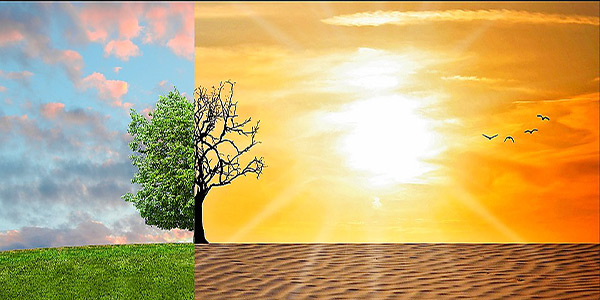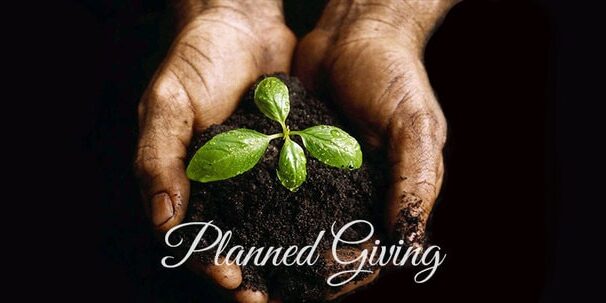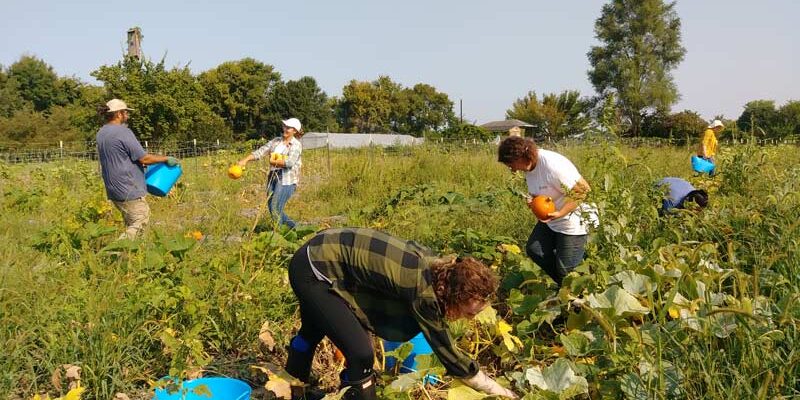‘Everything is Connected’ — Our Climate
Note: We want to share these blogs which we have adapted from “Our Common Home,” a joint initiative of the Dicastery for Promoting Integral Human Development along with the Stockholm Environment Institute (SEI). This is the first in a series of eight blogs.
“Everything is connected,” – Pope Francis, Laudato Si’ (91)
We know the drill: Ecological Crisis! Urgency! Action NOW! We call out: Show us the way!
Our common home/SEI: a joint initiative of the Dicastery for Promoting Integral Human Development and the Stockholm Environment Institute (SEI) has produced an excellent guide for caring for our living planet.

This guide aims to inform, inspire hope, and stimulate debate and action as it sets out essential facts and solutions on key topics, along with advice on how communities can respond.
It is inspired by Pope Francis’ second encyclical, Laudato Si’: On Care for Our Common Home, which explores our ecological crisis and its roots in over-consumption and current models of economic development.
These issues are a priority for Pope Francis, the Catholic Church and all believers, the scientific community and all citizens, as we answer the call to protect and regenerate our common home.
Using this guide as a resource, the Climate Change Task Force/Laudato Si’ Action Platform Team presents a series of blogs that cites what needs to change and practical examples of how to take action that is smart.
Our Climate (adapted from Our Common Home/SEI)
“The climate is a common good, belonging to all and meant for all.” – Laudato Si’ (23)
To tackle this climate crisis, we need to make fundamental changes to our economies and behavior, to shift our everyday patterns of consumption, and to advance social justice. Here are some talking points you can use as you follow Catherine Hayhoe’s advice to talk, talk, talk about the climate crisis.
The fossil fuel economy is the main cause of global warming
Our planet provided a stable climate that allowed humanity and nature to flourish for thousands of years. But since the start of the Industrial Revolution in the 18th century, we have emitted more and more greenhouse gases into our atmosphere that warm the climate by trapping the suns’ heat.

These gases are produced by burning coal, oil and gas to power industry and transport, and to supply our homes and buildings with heat and electricity. We also release greenhouse gases through intensive farming and by cutting down forests.
Climate breakdown is a severe threat to our security and the natural world
Droughts, storms and floods are already more frequent and severe. Shortages of food and water are causing hunger and conflict. Sea levels are rising: 150 million people currently live on land that will be below the high-tide line by mid-century.
Some of our most biodiverse environments, such as coral reefs, have been damaged by warming to a point from which they can’t recover. And the world’s poor, who are least responsible for climate change, bear an unfair burden of the impacts – though all of us will be affected.

What needs to change?
With swift action to rapidly eliminate greenhouse gas emissions, we can limit temperature rise and prevent its most dangerous outcomes. In 2015, nearly 200 countries signed an agreement in Paris to limit temperature rise to 1.5 degrees Celsius, but we have not acted fast enough. The coming decade will be critical.
Nothing less than a complete change to our economies and societies is required. We must:



A clear concise call for immediate steps to be taken. Some of them, we can implement in our behaviors now. Thanks for this piece.